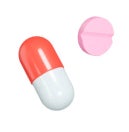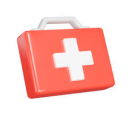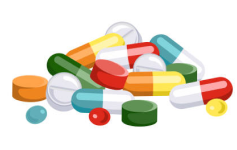Uses
What is Lamivudine for?
Lamivudine is an antiretroviral agent that blocks construction of virus. It is used to decrease the amount of viruses (viral load) to as low as possible, for as long as possible.
How should I take or use Lamivudine?
Lamivudine is usually taken twice daily. It is usually given in combination with at least two other antiretroviral agents to achieve significant decrease in viral multiplication.
Lamivudine can be administered with or without food.
What should I do if I forget to take or use Lamivudine?
Missing doses makes Lamivudine less effective and may also make the virus resistant to Lamivudine and other possible antiretroviral agents.
If you forgot take the medication within 4 hours, administer it as soon as you remember and then continue to take it as per normal. Otherwise, skip the missed dose and administer the next dose at the usual time. Do not double or increase the dose.
If you or your child vomits within 15 minutes of administration, give another dose if possible.
Side Effects
What are some common side effects of Lamivudine?
Common side effects are:
- Nausea and vomiting. This can be prevented by eating small frequent meals or sucking on candy.
- Stomach discomfort. Take the medicine after food to reduce gastric discomfort.
- Headache and pain. Mild painkillers (e.g. paracetamol) can be taken to reduce the pain.
- Fatigue/tiredness
- Diarrhea
- Skin rash.
Inform your doctor if any of the above side effects lasts for more than a few days or if they become serious or bothersome.
Rare but serious side effects may manifest as the following symptoms. Contact your doctor as soon as possible, if you notice any of the following:
- Numbness or tingling sensations of fingers, toes or feet
- Visual changes
Inform your doctor if you notice any other unusual symptoms. Always discuss with your doctor or pharmacist if you or your child has any problems or difficulties during or after taking Lamivudine.
Handling
How should I store Lamivudine?
- Keep away from children
- Keep in a cool, dry place, away from direct sunlight
- Store at room temperature
- Discard the oral solution one month after opening.
For more information
What else should I know about Lamivudine?
Some medication may reduce its efficacy, or increase its toxicity. Do not take any other medications or herbal products without first consulting your doctor.
Disclaimers
If you take more than the recommended dose, please seek medical advice immediately. The information provided on this page does not replace information from your healthcare professional. Please consult your healthcare professional for more information.
This article is jointly developed by members of the National Medication Information workgroup. The workgroup consists of cluster partners (National Healthcare Group, National University Health System, and SingHealth), community pharmacies (Guardian, Unity, and Watsons), and the Pharmaceutical Society of Singapore. The content does not reflect drug availability and supply information in pharmacies and healthcare institutions. You are advised to check with the respective institutions for such information.
Contributed by
Last Updated on September 2017

Need More Medicine?
Use Medicine Order Service on HealthBuddy.

Medicines Reminder
Get reminders and chart progress on HealthBuddy.



















